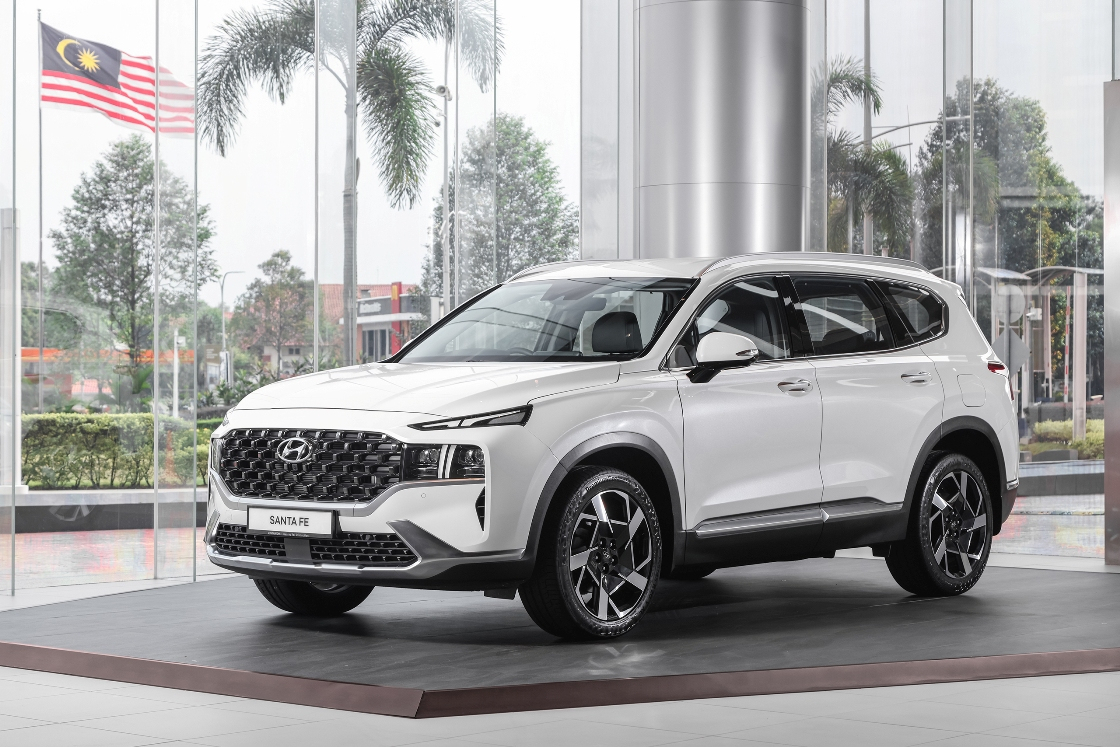 |
Hyundai Motor's locally-assembled SUV, the Sante Fe (Hyundai Malaysia) |
Hyundai Motor has decided to invest $484 million in Malaysia to expand local production there as the Korean automaker looks to ramp up its presence in the burgeoning Southeast Asian market.
According to Hyundai Motor on Wednesday, the automaker will make the investment over five years starting next year to upgrade its complete knock-down -- or CKD -- plant in Kulim in cooperation with local partner Inokom. The CKD plant expansion will mark Hyundai Motor’s largest investment in Malaysia yet.
The Malaysian production site currently assembles the Santa Fe, the only locally-assembled model Hyundai Motor sells there.
With the plant upgrade, Hyundai Motor plans to begin producing the Staria, a multipurpose van, in the middle of next year and roll out more mid-to-large SUV models including of premium brand Genesis. The increased production will begin with an annual production capacity of 20,000 units.
Hyundai Motor said that the new plant will focus on internal combustion engine and hybrid models at the beginning and gradually diversify production lines to include electric vehicles. Vehicles rolled out at the Kulim site will not only be supplied to the Malaysian domestic market but also be delivered to neighboring Southeast Asian nations. About 30 percent of the carmaker's Malaysia's production is expected to be exported.
Malaysian reports quoted Tengku Datuk Seri Zafrul Abdul Aziz, minister of investment, trade and industry, as saying, “A total of seven car models will be produced within five years.”
“Hyundai’s additional investment paves the way towards strengthening Malaysia’s role as a regional automotive hub,” said the Malaysian trade minister.
“Hyundai’s continued commitment is also set to directly create hundreds of high-skilled, high-tech jobs for Malaysians while creating valuable spillover impact and many more additional jobs to small and medium enterprises that support their operations.”
According to Malaysian reports, the trade minister also unveiled that Hyundai Motor plans to set up an EV battery pack assembly plan as a part of the investment’s second phase.
“We made this investment decision considering the growing importance of Southeast Asia and the Malaysian market,” said Hyundai Motor in a statement.
“We aim to contribute to the economic and social development of the region through job creation and local talent development."
With a population of some 34 million, Malaysia’s annual passenger car market has been continuously growing as the country set another record year for the automotive industry last year by selling almost 800,000 vehicles, an 11 percent jump on year.
According to the Malaysian Automotive Association, local brands -- Perodua and Proton -- accounted for about 60 percent of the entire market as usual, followed by Japanese brands including Toyota, Honda, Mitsubishi, Mazda and Isuzu taking up a market share of 30.4 percent together.
Although Hyundai sold 1,507 units last year, 631 more than 2022, it had to settle with a market share of 0.2 percent.




![[Herald Interview] 'Trump will use tariffs as first line of defense for American manufacturing'](http://res.heraldm.com/phpwas/restmb_idxmake.php?idx=644&simg=/content/image/2024/11/26/20241126050017_0.jpg)

![[Herald Review] 'Gangnam B-Side' combines social realism with masterful suspense, performance](http://res.heraldm.com/phpwas/restmb_idxmake.php?idx=644&simg=/content/image/2024/11/25/20241125050072_0.jpg)
![[Health and care] Getting cancer young: Why cancer isn’t just an older person’s battle](http://res.heraldm.com/phpwas/restmb_idxmake.php?idx=644&simg=/content/image/2024/11/26/20241126050043_0.jpg)